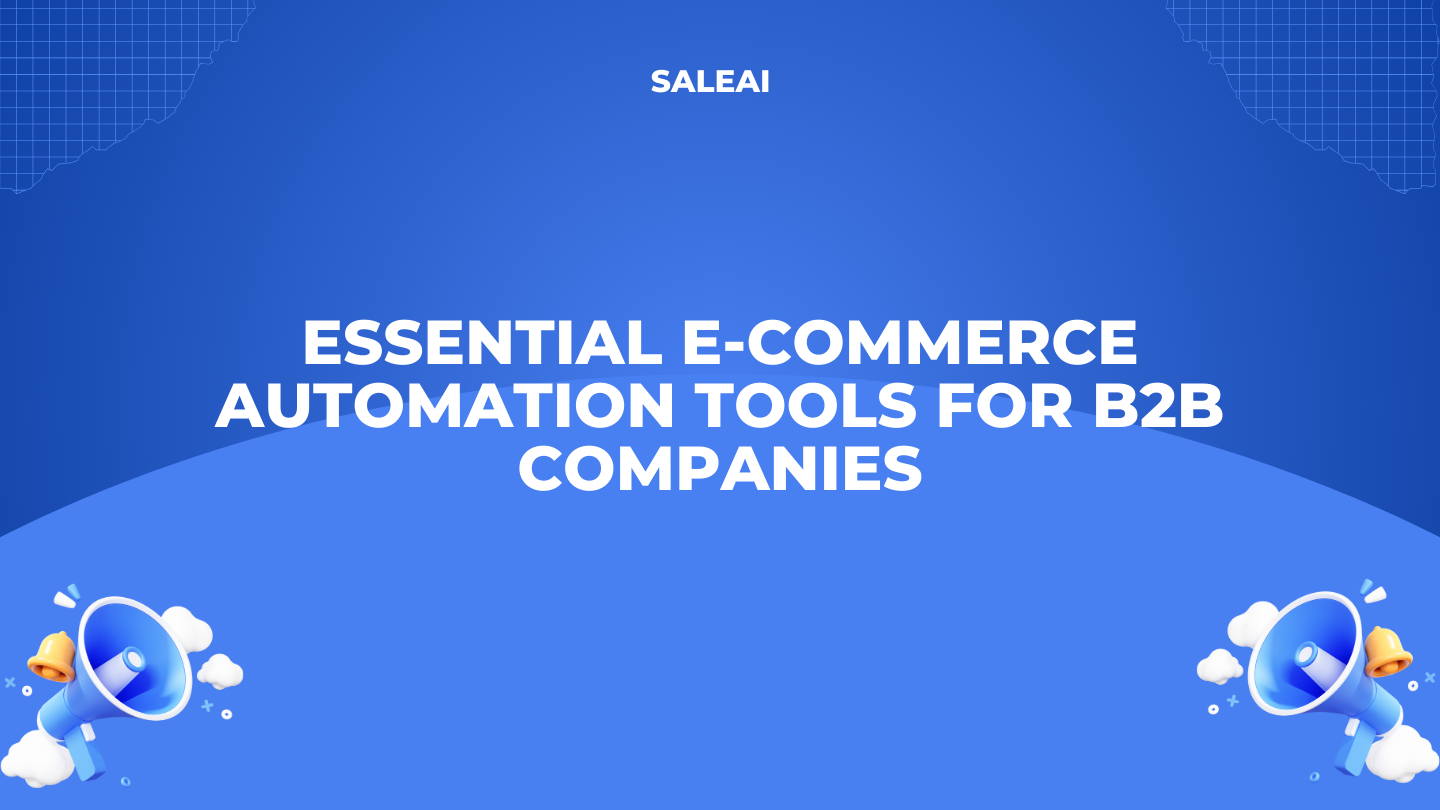
In the fast-evolving world of e-commerce, especially within the B2B sector, leveraging automation tools is crucial for maintaining efficiency and competitiveness. As businesses strive to expand their reach and improve customer experiences, e-commerce automation tools can help streamline operations, reduce manual intervention, and drive overall growth.
The Role of E-Commerce Automation in B2B
E-commerce automation refers to the use of technology to perform repetitive tasks without human intervention. In B2B, where operations can be complex and involve multiple stakeholders, automation becomes essential.
Benefits of E-Commerce Automation Tools
-
Time Savings: Automating routine tasks such as order processing, inventory management, and customer communication frees up time for your team to focus on strategic initiatives.
-
Improved Accuracy: Automation reduces the risk of human error in tasks like data entry and inventory updates, leading to more accurate records and a smoother operational flow.
-
Enhanced Customer Experience: By automating communication (e.g., automated emails and notifications), businesses can provide timely information to customers, improving satisfaction and engagement.
-
Scalability: As your B2B operations grow, automation tools can easily scale with your business, accommodating increased order volumes and customer demands without a proportional increase in effort or resources.
Essential E-Commerce Automation Tools for B2B Businesses
-
SaleAI: This comprehensive automation platform offers solutions tailored for B2B companies, helping streamline marketing, lead generation, and customer engagement processes. With features like automated follow-up emails and analytics, SaleAI enhances efficiency and effectiveness.
-
Shopify Plus: A robust e-commerce platform that supports B2B operations, Shopify Plus includes automation features for order fulfillment, customer communications, and inventory management, allowing businesses to manage large volumes with ease.
-
Zapier: Known for its ability to connect various apps and automate workflows, Zapier can help B2B organizations integrate tools across their tech stack, automating tasks like transferring data between platforms or setting up automated alerts.
-
HubSpot: This CRM and marketing automation platform supports B2B companies by automating lead nurturing, email marketing, and customer relationship management, ensuring timely communications and improved conversion rates.
-
TradeGecko: Now part of QuickBooks Commerce, TradeGecko is designed for inventory and order management, automating processes such as stock tracking, order processing, and sales reporting, making it a vital tool for B2B e-commerce businesses.
Implementing E-Commerce Automation in Your Business
-
Identify Repetitive Tasks: Begin by analyzing your current operations to identify tasks that are time-consuming and could be automated. Common targets include order processing, invoicing, and customer follow-up.
-
Choose the Right Tools: Research various e-commerce automation tools that suit your specific business needs and budget. Consider factors like integration capabilities, ease of use, and customer support.
-
Train Your Team: Ensure that your team is well-equipped to use the automation tools effectively. Providing training and resources is essential for maximizing the benefits these tools offer.
-
Monitor Performance: After implementing automation, continuously monitor performance metrics to assess the impact on productivity and customer satisfaction. Use analytics insights to make data-driven adjustments to your processes.
Conclusion
E-commerce automation tools are indispensable for B2B companies looking to enhance efficiency, improve accuracy, and elevate customer experiences. By leveraging powerful tools like SaleAI, businesses can streamline their operations and position themselves for growth in a competitive marketplace.
Embrace automation as a strategy for success in your e-commerce journey and discover the transformative effects it can have on your B2B operations!





